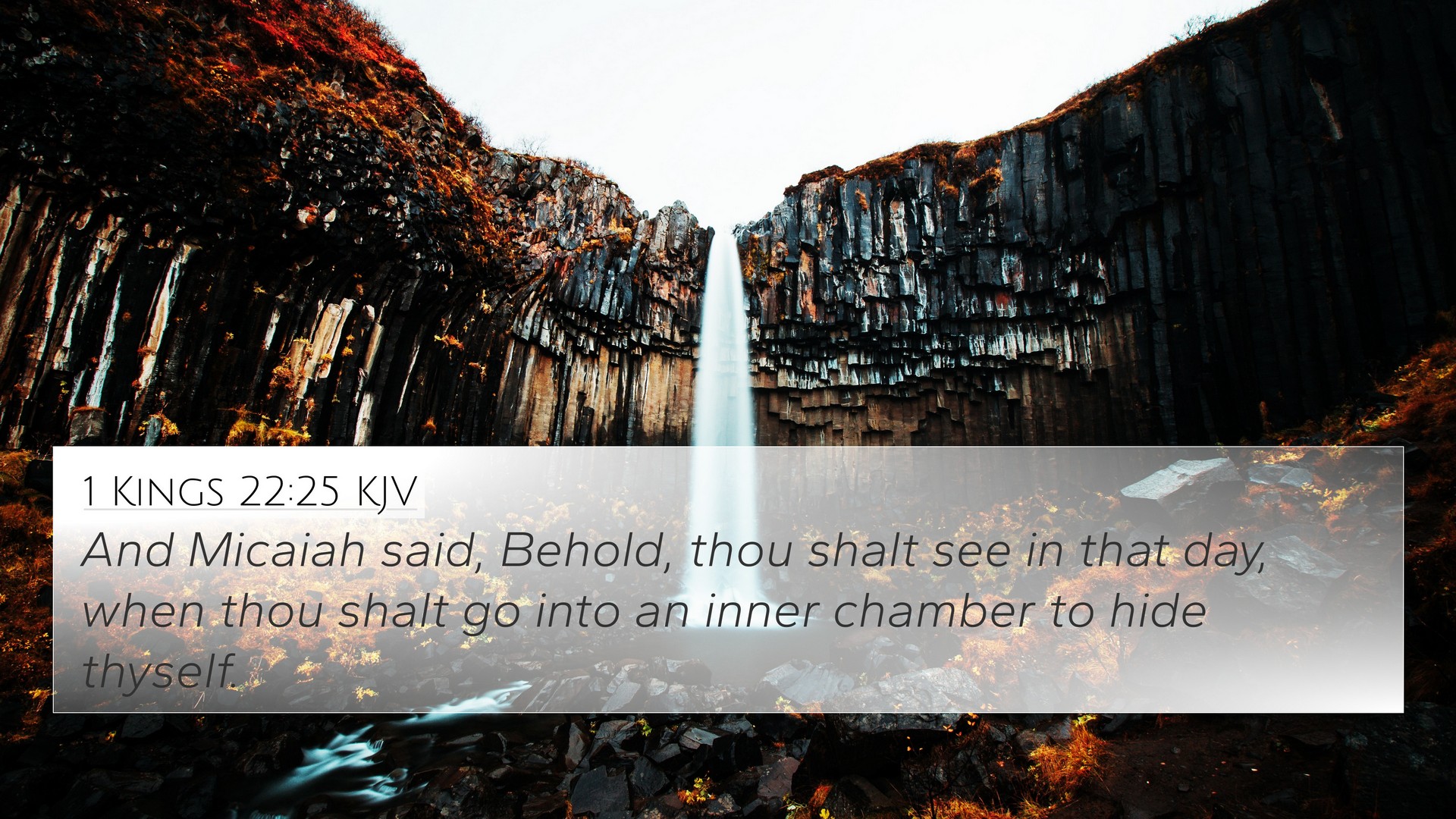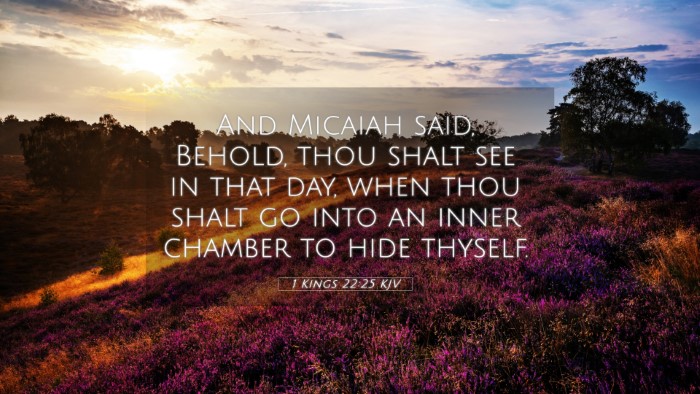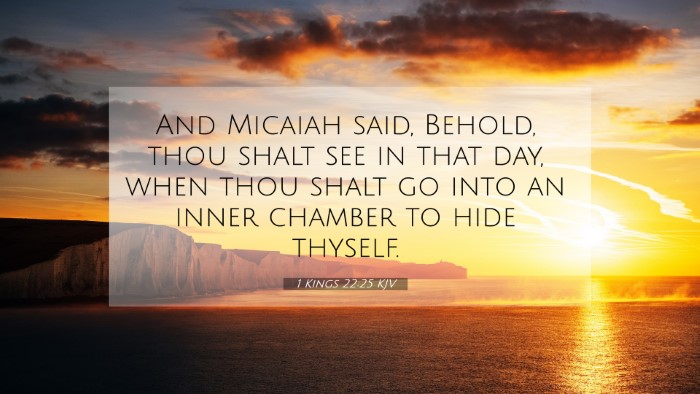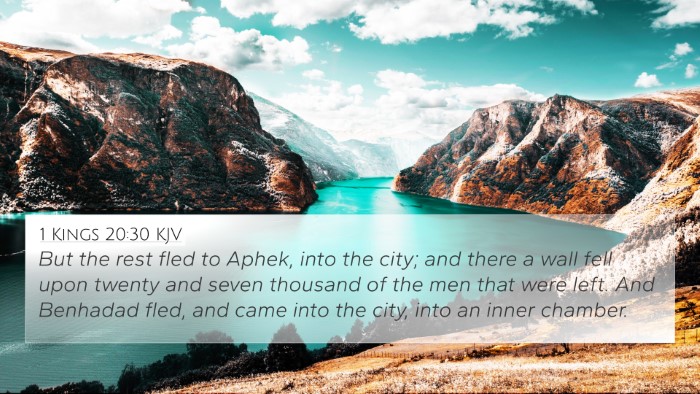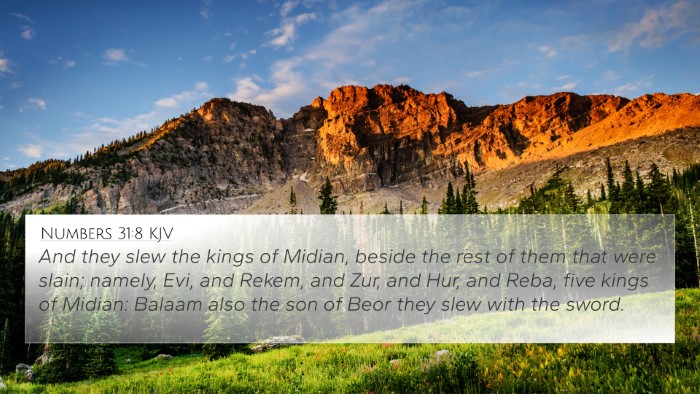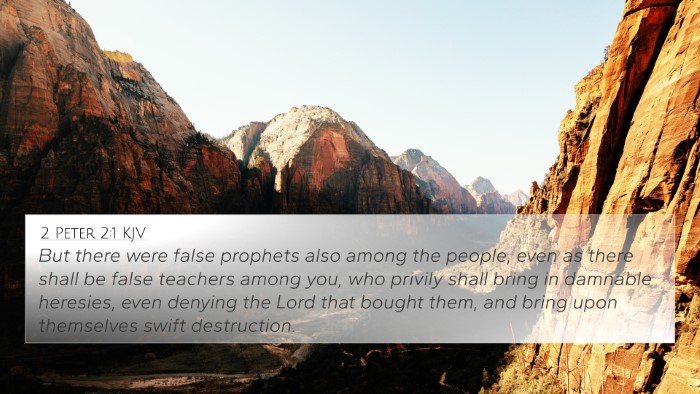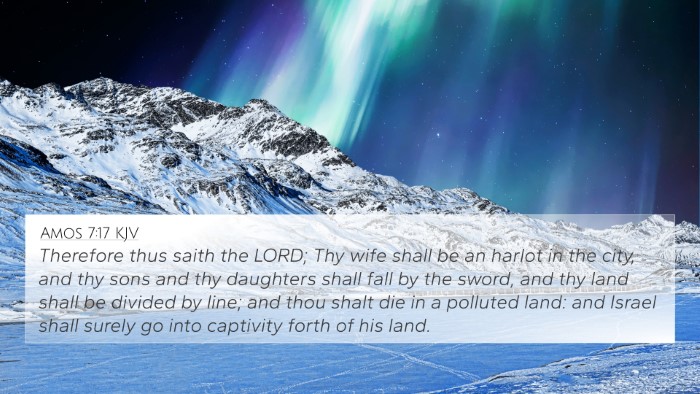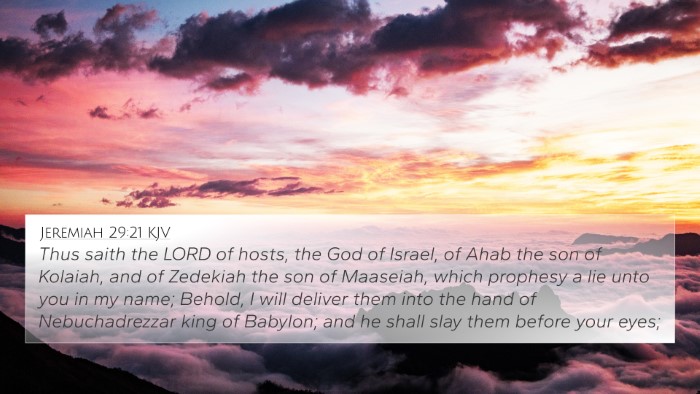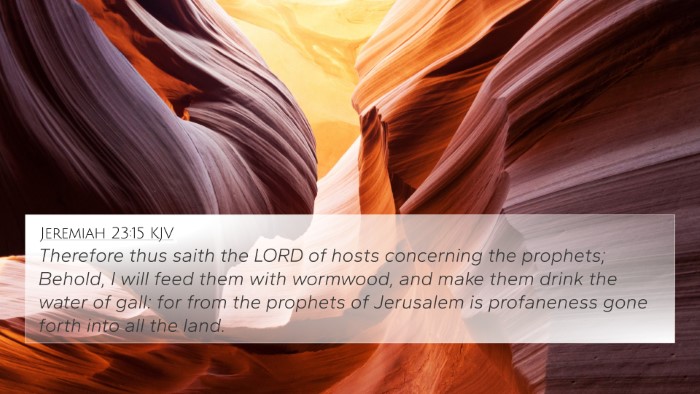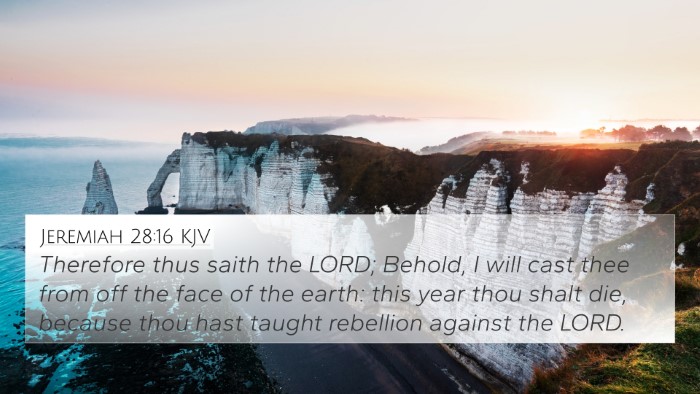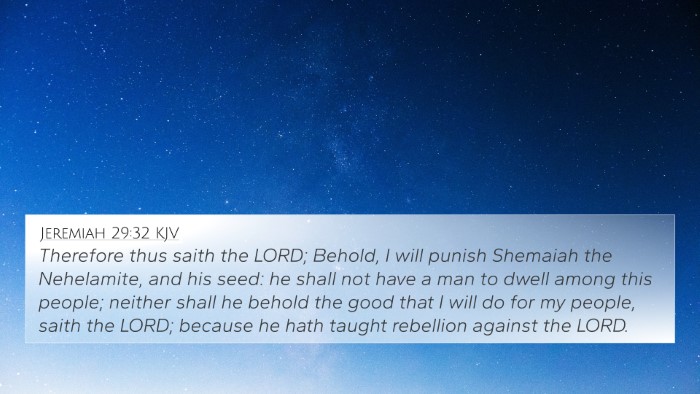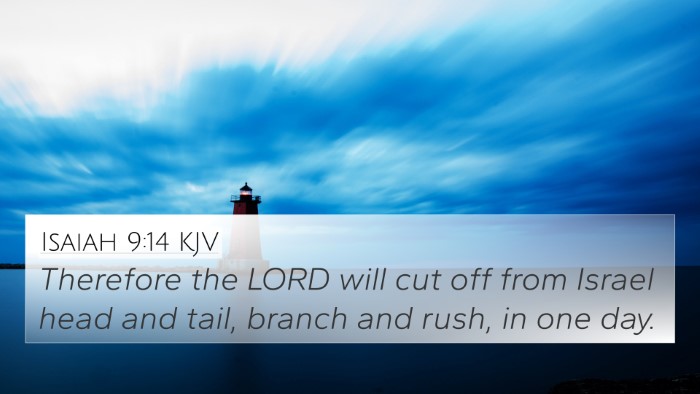Understanding 1 Kings 22:25
Verse: “And Micaiah said, Behold, thou shalt see in that day when thou shalt go into an inner chamber to hide thyself.” (1 Kings 22:25)
Contextual Background
This verse appears within a narrative where King Ahab seeks counsel from prophets regarding the impending battle against Ramoth-gilead. Micaiah, a prophet who speaks the truth against popular consensus, proclaims the dire consequences of Ahab's decisions.
Commentary Insights
Insights from prominent public domain commentaries provide a rich understanding of this verse:
- Matthew Henry: Henry emphasizes Micaiah's role as a true prophet amidst falsehood. His prediction highlights Ahab's imminent fear and his attempt to escape from divine judgment.
- Albert Barnes: Barnes interprets this verse as a warning against the futility of trying to hide from God's judgment. He argues that Ahab’s attempts to shield himself are indicative of his guilt and impending doom.
- Adam Clarke: Clarke notes that Micaiah’s words symbolize the ultimate vulnerability of mankind before divine decree. He stresses that no man can evade the consequences of his actions, regardless of attempts to conceal himself.
Thematic Connections
This verse resonates with numerous themes within scripture, illustrating the connection between divine providence, judgment, and repentance. Below are thematic Bible verse connections:
- Jeremiah 23:24: “Can any hide himself in secret places that I shall not see him? saith the LORD.” This verse emphasizes God's omniscience.
- Proverbs 28:13: “He that covereth his sins shall not prosper: but whoso confesseth and forsaketh them shall have mercy.” A parallel in the themes of judgment and the futility of concealing wrongdoing.
- Luke 12:3: “Therefore whatsoever ye have spoken in darkness shall be heard in the light; and that which ye have spoken in the ear in closets shall be proclaimed upon the housetops.” This link reinforces the theme of ultimate revelation of truth.
- Revelation 6:15-17: This passage illustrates how the kings of the earth will seek to hide from God’s judgment, reflecting the protective instinct in Ahab’s actions.
- Psalm 139:7-12: A profound exploration of God’s presence, where the psalmist acknowledges that there is no escape from God, paralleling Ahab’s false hope of hiding.
- Isaiah 29:15: “Woe unto them that seek deep to hide their counsel from the Lord!” This verse serves as a critique of those who try to evade God’s insight.
- Matthew 10:26: “For there is nothing covered, that shall not be revealed; and hid, that shall not be known.” A fitting addition, speaking culturally to the implications of hiding from truth.
Bible Verse Cross-References
The cross-references associated with this verse deepen understanding through scriptural dialogue:
- 1 Samuel 15:29: God’s unchanging nature with regard to decisions of judgment.
- Proverbs 12:15: The way of the fool is right in his own eyes—a reflection of Ahab’s misguided confidence.
- Hebrews 4:13: All things are naked and opened unto the eyes of Him—a reminder of God's omnipresent knowledge and judgment.
Cross-Referencing Strategies
In studying this verse and its implications:
- Tools for Bible Cross-Referencing: Utilizing a comprehensive Bible concordance can facilitate finding connections between related verses.
- How to use Bible Cross-References: This includes following the thematic threads and exploring parallel texts for enhanced understanding.
- Comparative Bible Verse Analysis: Examining the similarities and contrasts between Ahab’s situation and other scriptural narratives can yield deeper insights.
Conclusion
1 Kings 22:25 serves as a stern reminder of the futility of hiding from God’s judgment. Through the insights from esteemed commentaries and extensive cross-referencing, believers are encouraged to face the truth with humility. Engaging with these scriptural connections enhances the understanding of God’s sovereignty over human affairs, urging a life lived in transparency and repentance.
